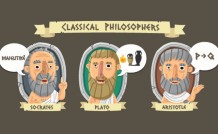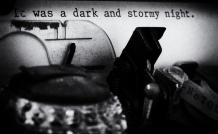Online Class: Film Appreciation

-
12Lessons
-
24Exams &
Assignments -
9Hours
average time -
0.9CEUs
-
Video Audit
Available
Course Description
Film Appreciation 101: A Cinematic Odyssey
Film is more than mere entertainment; it's a reflection of our history, culture, and psyche. Over the past century, the cinematic medium has evolved dramatically, leaving behind a rich tapestry of styles, genres, and narratives. 'Film Appreciation 101' invites you to traverse this captivating world, offering a comprehensive exploration that will deepen your understanding and amplify your enjoyment of films.
Why Take This Course?
For avid movie lovers, this course serves as a window into the intricacies of film analysis and critical discussion. For professionals in the media and entertainment sector, it offers essential insights into the ever-evolving landscape of cinema. And for those newly venturing into the realm of movies, it lays a solid foundation, setting the stage for more informed and enriched viewing experiences.
Course Breakdown:
-
The Value of Film Viewing: Understand why film matters. Delve into the cultural, historical, and personal significance of movies and the joy they bring.
-
Early Film History: Travel back in time to the birth of cinema. Explore the pioneers, the groundbreaking techniques, and the societal impact of films in their nascent stage.
-
The Filmmaking Process: Peek behind the curtain into the intricate world of film production. From scripts to screens, grasp how each step shapes the final masterpiece.
-
100 Years of Film Styles and Movements: Witness the evolution of cinema. Chart the progression of genres, styles, and movements, and understand their socio-cultural contexts.
-
Film Psychology: Dive into the mind of the viewer. Explore cognitive processes, emotional responses, and the profound effects of cinematic storytelling on human psyche.
-
Films To Watch — 1900 - 1960: Step into a cinematic time machine. Rediscover classics that defined half a century, from silent masterpieces to mid-century marvels.
-
Films to Watch — 1960 - 2020: Journey through the contemporary age of cinema. From New Wave innovations to 21st-century blockbusters, explore the films that have shaped recent decades.
-
General Ideas on Art Theory as a Consumer Habit: Decipher the bond between art and audience. Delve into how artistic theories influence consumer habits and preferences.
-
Film Composers to Know: Celebrate the unsung heroes behind cinema's most iconic scores. Explore the maestros whose melodies breathe life into visual tales.
-
Film Directors to Know: Spotlight on the visionaries. From Hitchcock to Nolan, delve into the minds of directors who've sculpted the cinematic landscape.
-
How to Get Your Money's Worth at the Movies: Maximize your cinematic experience. Tips, tricks, and hacks to ensure every theater visit is worthwhile.
-
Personal Enrichment as a Film Audience Consumer: Beyond mere viewing, how can films elevate personal growth? Harness the power of cinema for self-betterment.
Enrich Your Cinematic Journey
This course, in essence, is more than just a study; it's an invitation to experience cinema in its entirety. With meticulously curated content and expert insights, 'Film Appreciation 101' promises to be an unforgettable odyssey through the mesmerizing world of films. Whether you're a seasoned cinephile, an industry professional, or a curious novice, this course has a treasure trove of knowledge awaiting you. Dive in, and let the magic of movies unfold.
Course Motivation
If you can answer the riddle about why people go to see films, as they have for about 100 years, you're indeed informed about the human condition. The vast popularity of cinema indicates the reason must be compelling, common, and durable. Is it because we want to feel connected to one another? Is cinema a kind of psychic circus where all souls meet concerning the issues that bind together Mankind? Or is it the thrill of some new adventure, some mighty battle, some piercing new insight we long for, thirsty for a truth to set us free of our own dull lives?
More sophisticated thinkers might call this modern ritual of movies a collective, tribal, and social passage that invites the individual to be a part of the whole. You can't enjoy conversations around the water cooler at work if you missed the latest blockbuster film, which may have reached almost a billion people. If you're out of the loop where the new Spider-Man film is concerned, when the joy and grist of friendships and socializing is working its way in your life -- at the dinner table, in the market, at school, on TV and radio, or in magazines -- you may find you just can't connect, you don't feel a part of things, or you're lost on the topic. Because even if it's not always the films, themselves, we really enjoy (and of course we do), a big part of the sauce you get from your cinema experience is feeling the buzz, talking about it, being a part of something new.
Depending on your walk of life, you can take this a bit further. Even if the films are 60 years old, and the director has long since passed into eternity. "Alfred Hitchcock? I love his stuff!" Or at the dentist's office, does it feel right to impress the hygienist with your knowledge of Spaghetti Westerns, just for something to talk about between cleanings? What about your budding career as a fine arts painter -- do your watercolor treatments of Marilyn Monroe and Bette Davis stack up well with Andy Warhol, or not?
This is cultural reference stuff for a reason -- because it's true: We measure our understanding of ourselves and different areas of life in the language and psychic coinage of shared film stories. These stories have become so well known, they're virtual bywords for status, morality, judgment, and even -- sometimes -- our entire world view. This doesn't even include actual careers in the entertainment industry, where "speaking the language" can mean the difference between working or not working.
So, if films have touched your life (and it would be rare if they have not), this syllabus is intended simply to help you enjoy films more than you do now, In the same way you might enjoy wine and food more by knowing something about the ingredients, how they're prepared, or how they compare with similar menu items,this course is your introduction to, and a quick trip throughout, the cinematic bliss of viewing films with more understanding.
How many times have you seen a film and the experience was a tiresome burden? Or did you pay your $20 to see a film and then almost instantly forgot what you had seen, as if it had passed before your eyes with no more depth for you than watching an aquarium full of fancy tropical fish? Have you ever walked out of a film? Why does that happen, or in what way could you have chosen a film to attend more carefully, so as to have avoided disappointment? Do you always go to see romance films or family films -- but not horror or action films? Do you remember films from your childhood and even have dreams about those experiences, like old friends? Will you attend a new film with very high box office numbers, even if you're unfamiliar with it -- but not a very small film that is only on a few hundred screens around the country? When you go to the video store, or the video section of your local library, does the term "classic films" scare you off, even though you may have heard about Charlie Chaplin and Laurel and Hardy? Or what about film reviews -- do you read them or trust them?
It can be argued that the real value of film viewing is minor. It can be argued that many films, or all films, do more harm than good. But in the best case, knowledge here is not power, it's enjoyment. No one can tell you how to watch a film -- you just do it -- you take a seat, you're awake with your eyes and ears open, you expose yourself to the material, and you laugh, cry, or wail----then it ends and you can go home. If you crossed your legs during the film, fell asleep, or talked on your cell phone, it's mostly your own business. But to assess the experience, to consider it all mindfully, to make your film audience consumer choices as a more informed participant, and to relate the acquired cultural checkpoint material around the water cooler as someone who actually knows a little of what he's talking about -- this is appreciation, this is criticism, this is film enjoyment. No matter how much you learn about films, that little childlike thrill, deep inside, when the hero slays the dragon, or gets the girl, or jumps out of the airplane will always be there.
Course Lessons
Lesson 1: The Value of Film Viewing
This lesson asks the question, "Why do we enjoy watching movies?"Lesson 2: Early Film History
This lesson describes the evolution of filmmaking, the inventors, and early actors.Lesson 3: The Filmmaking Process
This lesson describes the different phases of the filmmaking process.Lesson 4: 100 Years of Film Styles and Movements
This lesson describes how technology, culture, and current events affect movie making.Lesson 5: Film Psychology
This lesson describes how writers and directors can get reactions from movie goers.Lesson 6: Films To Watch -- 1900 - 1960
This lesson explores the popular, classic, and well-made pictures of this era.Lesson 7: Films to Watch -- 1960 - 2020
With new technology, popular movies are changing. Here are some of the most popular.Lesson 8: General Ideas on Art Theory as a Consumer Habit
This lesson focuses on questions of art theory. What makes movies "art" or "classic?" What makes a picture "good" or "bad?"Lesson 9: Film Composers to Know
This lesson lists many of the most popular movie composers, and some of their greatest hits.Lesson 10: Film Directors to Know
This lesson lists influential film directors of the past and the present.Lesson 11: How to Get Your Money's Worth at the Movies
This lesson examines how box office receipts are influenced by the reviews, and by consumer likes and dislikes.Lesson 12: Personal Enrichment as a Film Audience Consumer
This lesson provides insight into "reality" versus "big screen."
Learning Outcomes
- Describe the value of film viewing.
- Summarize early film history.
- Summarize the filmmaking process.
- Define 100 years of film styles and movements.
- Define film psychology.
- Describe general ideas on art theory as a consumer habit.
- Describe new ways to enjoy film, technology, and the future.
- Demonstrate mastery of lesson content at levels of 70% or higher.
Additional Course Information

- Document Your Lifelong Learning Achievements
- Earn an Official Certificate Documenting Course Hours and CEUs
- Verify Your Certificate with a Unique Serial Number Online
- View and Share Your Certificate Online or Download/Print as PDF
- Display Your Certificate on Your Resume and Promote Your Achievements Using Social Media

Student Testimonials
- "I loved this course! It was so helpful learning the different movie styles and going through classics in the 90's and before! I can't think of anything that needs to be added to this course. Overall 100%!!" -- Joyell L.
- "Mac is awesome and always does a fantastic job. I love his videos for the information and his enthusiasm." -- Diana C.
- "The Instructor was very helpful to me, and provided feedback and discussion after almost every lesson. I have studied two history courses and Buddhism with him as well as Chinese culture." -- Judith J.
- "My professor in this class was receptive, passionate, honest and often funny." -- Jess M.
- "Great instructor. Provided useful feedback. Very prompt." -- Donna S.
- "Mac, Thanks for your prompt and encouraging feedback. You made the class more satisfying." -- Loren noel L.
- "I love it I can't wait for more lessons on film from this instructor." -- David P.
- "Great instructor . Very knowledgeable ." -- Roger G.
- "I liked the summaries of the different film, directors,and composers. Some of the aesthetic principles were interesting also." -- Linda B.
- "I appreciate the availability and the comments made on my work." -- Carlos G.
Related Courses
-
 13 hours
1.3 CEUs
Adobe Illustrator 101
+ More Info
13 hours
1.3 CEUs
Adobe Illustrator 101
+ More Info
-
 5 hours
0.5 CEUs
Writing the Great American Short Story
+ More Info
5 hours
0.5 CEUs
Writing the Great American Short Story
+ More Info
-
 12 hours
1.2 CEUs
Philosophy 101
+ More Info
12 hours
1.2 CEUs
Philosophy 101
+ More Info
-
 7 hours
0.7 CEUs
Final Cut Pro X
+ More Info
7 hours
0.7 CEUs
Final Cut Pro X
+ More Info
-
 9 hours
0.9 CEUs
ABCs of Technical Writing
+ More Info
9 hours
0.9 CEUs
ABCs of Technical Writing
+ More Info
-
 11 hours
1.1 CEUs
Humor Writing 101
+ More Info
11 hours
1.1 CEUs
Humor Writing 101
+ More Info
-
 9 hours
0.9 CEUs
Nonfiction Writing 101
+ More Info
9 hours
0.9 CEUs
Nonfiction Writing 101
+ More Info
-
 12 hours
1.2 CEUs
Screenwriting 101
+ More Info
12 hours
1.2 CEUs
Screenwriting 101
+ More Info
-
 23 hours
2.3 CEUs
Historical Fiction Writing
+ More Info
23 hours
2.3 CEUs
Historical Fiction Writing
+ More Info
-
 14 hours
1.4 CEUs
Creative Writing for Beginners
+ More Info
14 hours
1.4 CEUs
Creative Writing for Beginners
+ More Info
-
 14 hours
1.4 CEUs
Creative Writing Workshop
+ More Info
14 hours
1.4 CEUs
Creative Writing Workshop
+ More Info
-
 11 hours
1.1 CEUs
Journaling and Memoir Writing
+ More Info
11 hours
1.1 CEUs
Journaling and Memoir Writing
+ More Info
-
 10 hours
1.0 CEUs
Travel Writing 101
+ More Info
10 hours
1.0 CEUs
Travel Writing 101
+ More Info
-
 12 hours
1.2 CEUs
Writing Effective Persuasion
+ More Info
12 hours
1.2 CEUs
Writing Effective Persuasion
+ More Info
-
 8 hours
0.8 CEUs
Adobe Lightroom 101
+ More Info
8 hours
0.8 CEUs
Adobe Lightroom 101
+ More Info
-
 17 hours
1.7 CEUs
Poetry Writing 101
+ More Info
17 hours
1.7 CEUs
Poetry Writing 101
+ More Info
-
 6 hours
0.6 CEUs
Adobe Captivate
+ More Info
6 hours
0.6 CEUs
Adobe Captivate
+ More Info
-
 11 hours
1.1 CEUs
How to Write a Short Story
+ More Info
11 hours
1.1 CEUs
How to Write a Short Story
+ More Info
-
 12 hours
1.2 CEUs
Advertising, Marketing and Sales Writing
+ More Info
12 hours
1.2 CEUs
Advertising, Marketing and Sales Writing
+ More Info
-
 7 hours
0.7 CEUs
American Literature Review
+ More Info
7 hours
0.7 CEUs
American Literature Review
+ More Info
-
 12 hours
1.2 CEUs
Adobe Photoshop
+ More Info
12 hours
1.2 CEUs
Adobe Photoshop
+ More Info
-
 17 hours
1.7 CEUs
Photography 101: Beginner to Intermediate
+ More Info
17 hours
1.7 CEUs
Photography 101: Beginner to Intermediate
+ More Info
-
 8 hours
0.8 CEUs
Digital Photography 101
+ More Info
8 hours
0.8 CEUs
Digital Photography 101
+ More Info
-
 12 hours
1.2 CEUs
Adobe After Effects
+ More Info
12 hours
1.2 CEUs
Adobe After Effects
+ More Info
-
 9 hours
0.9 CEUs
Mystery Writing
+ More Info
9 hours
0.9 CEUs
Mystery Writing
+ More Info
-
 6 hours
0.6 CEUs
Microsoft Publisher Level 1
+ More Info
6 hours
0.6 CEUs
Microsoft Publisher Level 1
+ More Info
-
 8 hours
0.8 CEUs
Adobe InDesign 101
+ More Info
8 hours
0.8 CEUs
Adobe InDesign 101
+ More Info
-
 9 hours
0.9 CEUs
Microsoft Project Level 1
+ More Info
9 hours
0.9 CEUs
Microsoft Project Level 1
+ More Info
-
 8 hours
0.8 CEUs
Adobe Premiere 101
+ More Info
8 hours
0.8 CEUs
Adobe Premiere 101
+ More Info
-
 12 hours
1.2 CEUs
Paranormal Romance Writing
+ More Info
12 hours
1.2 CEUs
Paranormal Romance Writing
+ More Info
-
 7 hours
0.7 CEUs
Writing Women's Fiction
+ More Info
7 hours
0.7 CEUs
Writing Women's Fiction
+ More Info
-
 20 hours
2.0 CEUs
Photoshop Elements 101
+ More Info
20 hours
2.0 CEUs
Photoshop Elements 101
+ More Info
-
 6 hours
0.6 CEUs
Freelance Writing 101
+ More Info
6 hours
0.6 CEUs
Freelance Writing 101
+ More Info
-
 12 hours
1.2 CEUs
Romance Writing
+ More Info
12 hours
1.2 CEUs
Romance Writing
+ More Info









